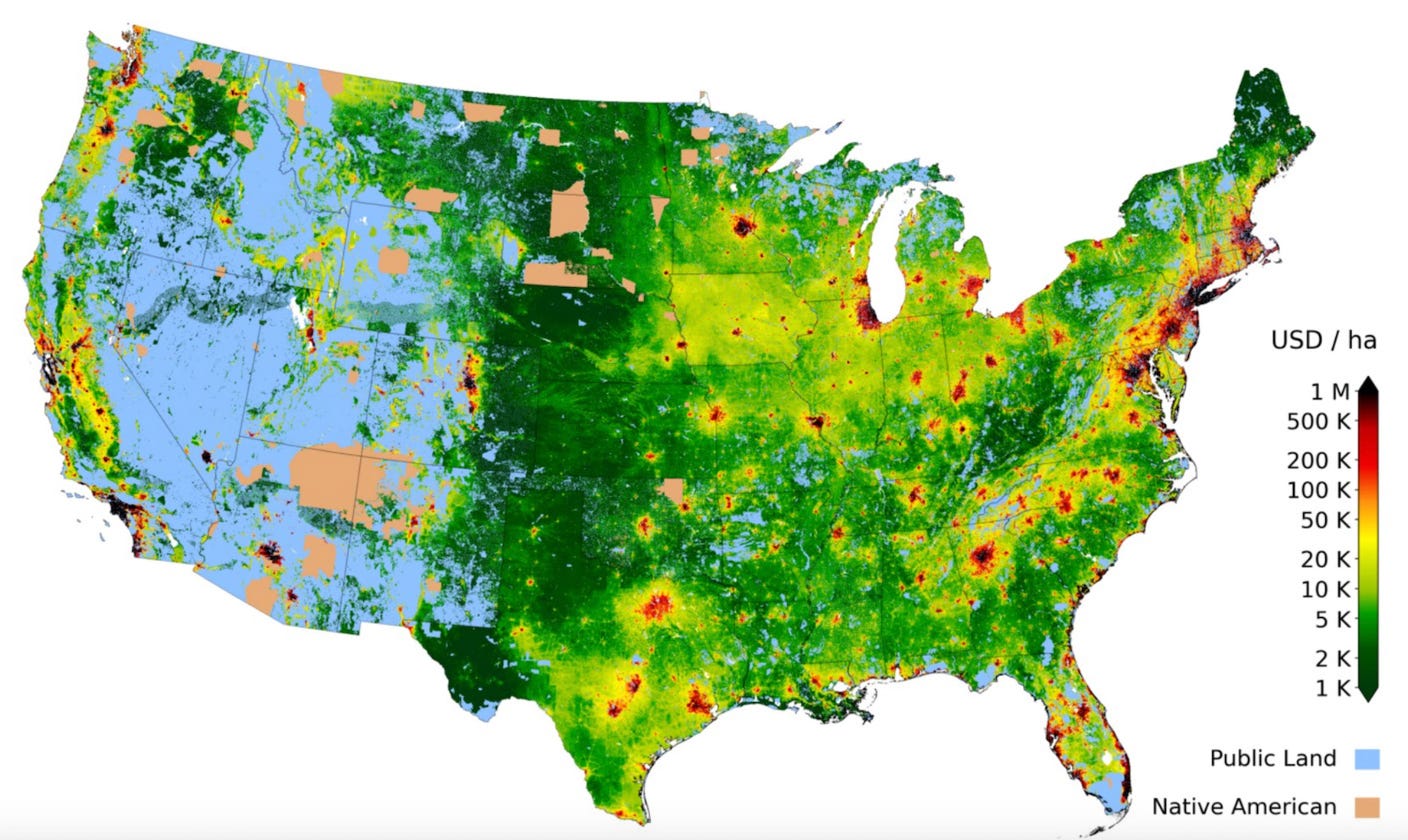Destabilized Saturday Edition #31
Relative climate change gainers vs. losers, treason watch list, "And I was the CIA Director", Courvoisier to crudités
In envisioning what the world will look like after 20 more years of climate-fueled extreme weather events, one thing I think about is “where should and shouldn’t one seek to own property given what’s coming?” This question matters because in the coming decades real estate in some places will skyrocket in value, while in other places it will experience a crash more extreme than any since the Great Depression, and maybe ever. So although future property value appreciation isn’t the only consideration in where to buy a home or investment property, climate change makes it a factor buyers/owners should spend far more time evaluating than ever before.
The right approach, at a conceptual level, is to buy a home in a location that will be a net gainer from the climate realignment rather than a net loser. Will climate change make the place you’re thinking of buying relatively more attractive compared to everywhere else or relatively less so? And to what degree?
Every place will be impacted by climate change and will need to invest in infrastructure upgrades and other forms of adaptation. But some places will suffer severe damage from which they won’t ever fully recover, while others will face far more manageable challenges. Climate-intensified extreme weather will hit the latter group, but relative to the average place that is hit harder and/or less able to ruggedize, they will end up better off. To make this more concrete, if in 2022 a relatively climate resilient place is in say the 47th percentile of places to live based on overall appeal, enduring below average climate impacts may move it up to the 68th percentile.
—
Changes in value are the difference between value today and value in the future. All else equal, a property in a given place has greater potential to rise in value if it starts at a lower value (footnote: all else is rarely “equal” when it comes to real estate, so this is a concept that has to be applied with great care in the real world). And the greater the climate durability of a place, the higher its likelihood of rising in value.
In a post in June, I laid out the five key criteria for identifying climate durable homes whose value is likely to rise in the future:
Vulnerability to climate impacts
Population density
Wealth density
Willingness to raise taxes
Social capital strength
I left one out: Low value today (and therefore low price). For a home, or real estate market overall, to grow a lot in value over time, it is easier – again, all else equal – if it starts from a lower baseline.
The ideal home from an investment perspective, then, is located in a well-off, high social capital neighborhood of a city willing to raise taxes to fund public investments, resilient against climate impacts, and where home values today are fairly low.
If I were going to build a portfolio of investment properties to hold for the next 20-60 years, I’d focus on climate resilient cities currently out of fashion and whittle down the list based on these criteria.
My Work
The five essential criteria for buying a climate-durable home
Interesting Reads
How social media has undermined our constitutional architecture
Madison also expected that the breadth of the new nation and geographic dispersal of its residents would themselves dampen the consequences of those robust disagreements.
“Extend the sphere [of the country] … and it will be more difficult for all who feel it to discover their own strength, and to act in unison with each other. … The influence of factious leaders may kindle a flame within their particular States, but will be unable to spread a general conflagration through the other States.”
Tweets of the Week



Extreme Weather Watch




Creeping Authoritarianism Watch




(Mastriano is the Republican nominee for governor of Pennsylvania)


(“Mark Finchem, the GOP nominee for Arizona secretary of state who is endorsed by former President Trump, posted a “Treason Watch List” to his Pinterest account, CNN first reported on Tuesday. Finchem, who currently serves as a state representative, repeatedly posted about anti-government conspiracy theories and stockpiling ammunition to his Pinterest account.”)
Progress Joy and Hope














